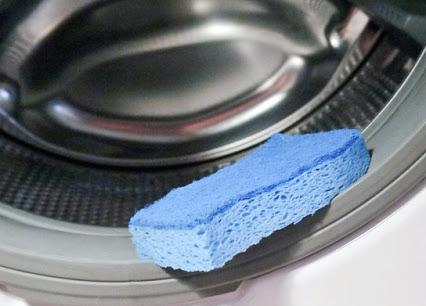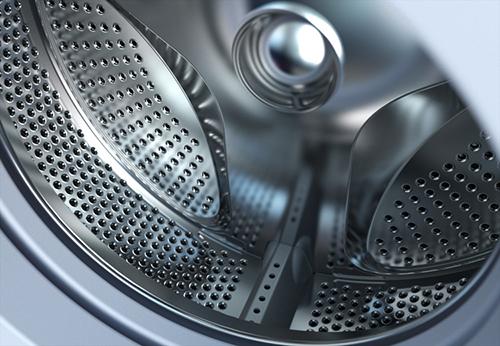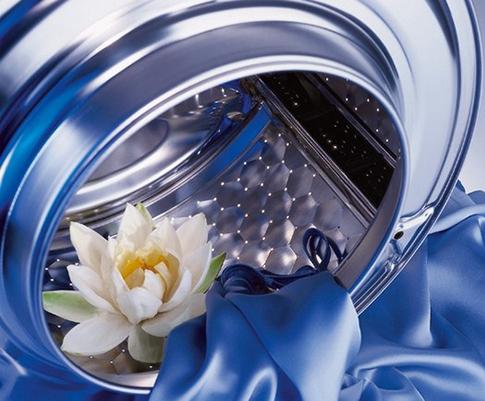Acquaintance with mold in the washing machine is most often unexpected. Even if you carefully care for your home helper, use decalcifiers, gentle powders, powder containers and other paraphernalia, mold and musty smells can still appear.
It's all about non-compliance with the general rules of care. The main thing in such a situation is to have time to eliminate this misfortune.until the colonies have spread over the parts of the aggregate.
The main places where mold appears in the washing machine
Start the fight by identifying all kinds of locations for the insidious enemy, namely:
- sealing gasket around the door (typical for machines with horizontal loading);
- tray for powder and softener;
- hose for supplying powder to the drum;
- filter and drain hose.
Seeing the enemy in person, you can safely arm yourself with a brush and one of the suitable detergents. But before you eliminate the mold completely, it is worth understanding why this problem, in general, arose in your typewriter.
Causes

A classic example: the hostess sins with the frequent use of a large amount of rinse aid, does not use bleaching powders, due to lack of time or savings, includes washing at the minimum temperature and fast mode.Often the owner forgets to take out the laundry in time after the end of the wash, rarely cleans from scale, does not remove the remaining liquid from the rubber seal and the tray, where to put the powder in the washing machine.
Do you recognize? Such actions allow the fungus to acquire a chic platform for a painless life. Mold is content with the absence of active detergents, traces of rinse aid, dampness and heat, poor ventilation, and is in no hurry to leave your washing unit. If you do not agree to share a washing machine with an uninvited guest, go to the means of struggle.
How to get rid of mold in a washing machine

The first thing to do is to remove visible traces. To do this, you will need household and specialized chemicals, a small brush and perseverance.
Chlorine-containing products
For processing, Domestos or any other gel with chlorine is required. In this case, oxygen bleach will also work. Dilute the product with water in a ratio of 1 to 1. Wet the brush and walk over the black marks. After the first procedure, the places of deployment will noticeably decrease.
Dishwashing liquid
Dish gel is not able to kill spores, however, it can clean off a larger number of harmful microbes and plaque. Dilute the gel, citric acid and water until a slurry is formed.Thoroughly rub and treat all affected surfaces, including the tray. If the effect is weak, leave the mixture for 10-20 minutes and start cleaning again.
Citric acid and powder
To eliminate the fungus locally, generously treat the rubber cuff or any other surface with a mixture of water, citric acid and washing powder (not aggressive). Do not rinse and leave the unit for a day. After carefully rub with a damp brush, remove excess. Run the wash at the highest temperature. Citric acid is a wonderful helper if needed. clean the washing machine and boil.
How to prevent mold

If black mold has appeared in the washing machine, then only an integrated approach will help. The main danger is an enviable resistance to any treatment. A single treatment gives only visible results. and the insidious neighbor after a while again comes to visit. To finish off the guest, you will finally need manual cleaning with acid or active substances, high temperature and total dryness.
Method number 1
Make it a habit to add white vinegar and regular white/oxygen bleach powder when washing white bedding and towels. Stick to a ratio of 1 to 1. A safer and more gentle option is 2-3 cups of vinegar in the rinse compartment. Then start the mode with a temperature of 90 °C.This approach will save you from a possible relapse and put cotton white things in order.
Method number 2
The golden rule in the fight against mold is regular washing at a maximum temperature of 90 ° C. It is hot water that can kill spores in the bud. It is enough to run the machine idling once a month at the maximum temperature, adding citric acid and active bleach to the tray.
Method number 3
Once every 5-6 months, run the machine without loading laundry. You will need a liter of vinegar and 300-400 g of citric acid. Such a killer mixture cleans the formed plaque and scale, eliminating any manifestations of mold.
Preventive measures and machine treatment

In order not to meet with black mold in the future, you should follow the minimum rules for caring for the washing unit:
- Remove moisture and possible dirt from the inside of the rubber seal.
- Ventilate the drum after each wash, keep the door open if possible.
- The powder tray must be cleaned with detergent every 2 months.
- After each wash, wipe the door dry and remove the liquid from the tray, then leave it open.
- Do not use gel-based products often, as they settle on the walls and parts and are poorly washed out.
- If the washing machine is installed in the bathroom, do not lock the door tightly, leaving the moisture to evaporate faster. Ventilate the room more often.
- Periodically clean the filter and hoses, as this collects organic residues and debris. You can carry out this procedure manually and without the help of a wizard.
- If you are using case for automatic typewriter, then do not rush to put it on and close the laundry loading hatch - let the machine dry.
By doing simple manipulations and following the rules of use, you do not leave mold a chance to return and live comfortably in the washing machine.

Comments
what kind of vinegar please specify